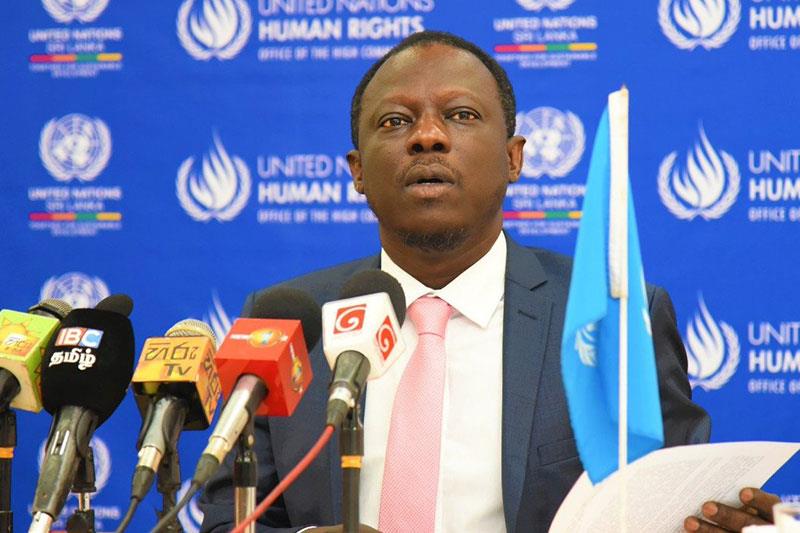
UN Special Rapporteur, Clément Nyaletsossi Voule, has stated that the increasing surveillance in Sri Lanka in 2019, particularly after the Easter Sunday attacks, “is clearly aimed at creating a climate of intimidation," and warned that the North-East remained "heavily militarized".
Voule’s report notes that despite the end of the armed conflict over a decade ago, areas of in the north and east remain heavily militarised. His report is based on his visit to Sri Lanka from 18 – 26 July 2019. He notes that the surveillance structure has expanded in the aftermath of the Easter Sunday bombing and remains largely independent of government direction.
"Although a decade has passed since the end of the protracted and deadly armed conflict, a real and comprehensive security sector reform has yet to take place, with areas in the north and east parts of the country remaining heavily militarized," he said. "As a result, the surveillance structure in the country, especially in the north and east, has remained in place."
Surveillance of civil society
A specific concern he raises is of the continued surveillance of civil society actors including in online spaces such as social media platforms.
Voule reports that almost all organisations were subject to low but regular levels of surveillance. The level of surveillance, however, varied depending on how sensitive their work was perceived.
Surveillance included monitoring phone calls, visiting homes and workplaces, as well as photographic surveillance. He maintains that there are several reports of Sri Lanka’s security force and intelligence officers entering NGO offices and subjecting members to questioning in a hostile environment.
He states that in one instance an NGO’s offices were visited six-times within the span of two months by Criminal Investigation Department officers. Some civil society members have stressed that they have been forced to refrain from conduction home visits out of concern that Sri Lanka’s security forces might follow them the homes of victims.
Threatening the right to assemble
Voule states that protesters themselves were subject to surveillance.
‘Protests are also frequently surveilled by security forces and intelligence services, including the Criminal Investigation Department, with participants often being subjected to questioning, threats and intimidation before and after assemblies’, he said.
According to the Special Rapporteur, there are allegations that NGO members and members of assemblies must inform security and intelligence officials before holding events, as they are afraid that they will be shut down otherwise
There have also been reports of intelligence officials in civilian clothing observing and monitoring meetings held by civil society actors.
A climate of mistrust
The Special Rapporteur has warned that such surveillance and intimidation is intended to create a climate of mistrust and fear, which leads to self-censorship and has a chilling effect on civic space.
See the full text of the report here.
We need your support
Sri Lanka is one of the most dangerous places in the world to be a journalist. Tamil journalists are particularly at threat, with at least 41 media workers known to have been killed by the Sri Lankan state or its paramilitaries during and after the armed conflict.
Despite the risks, our team on the ground remain committed to providing detailed and accurate reporting of developments in the Tamil homeland, across the island and around the world, as well as providing expert analysis and insight from the Tamil point of view
We need your support in keeping our journalism going. Support our work today.
For more ways to donate visit https://donate.tamilguardian.com.

